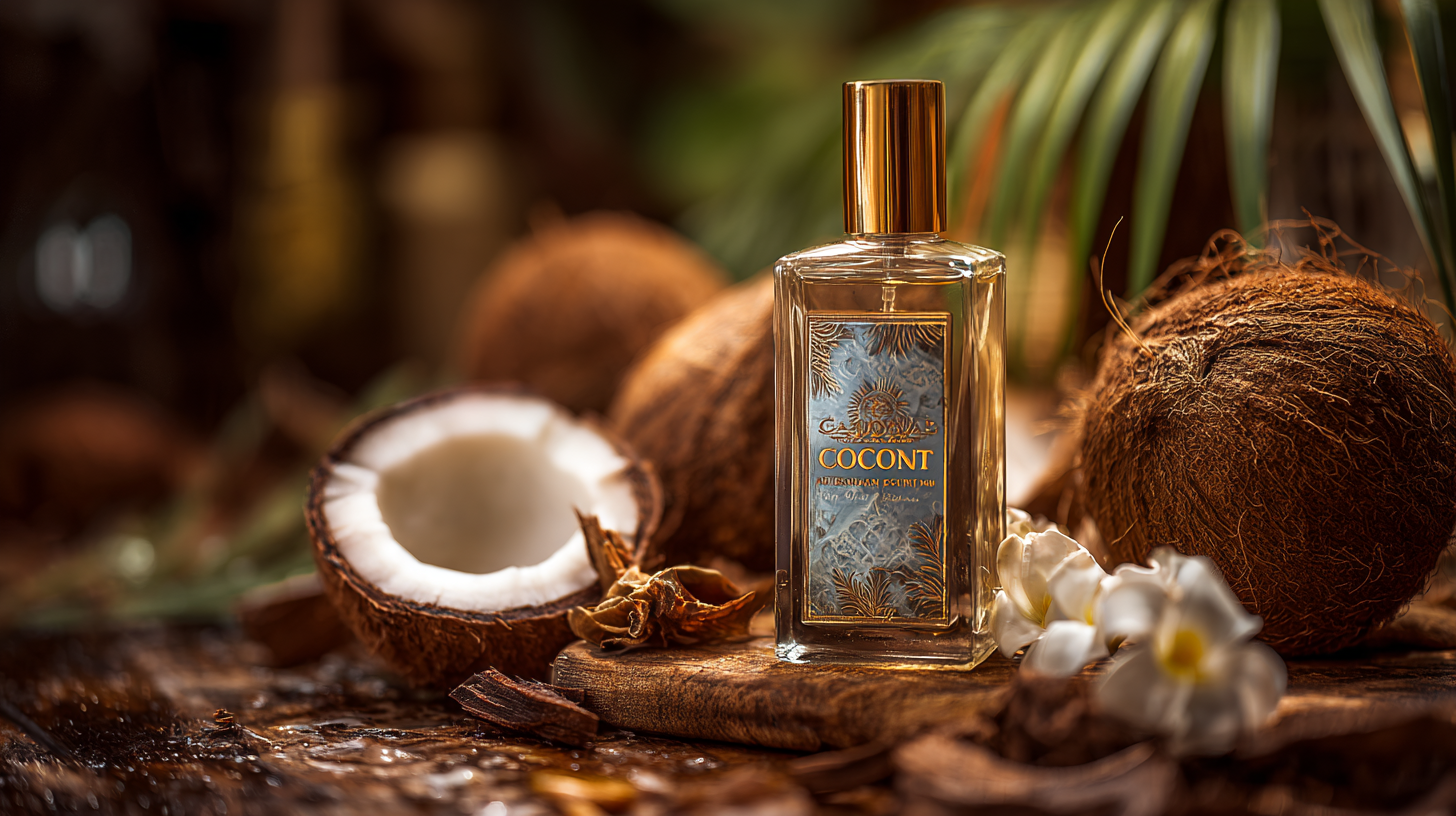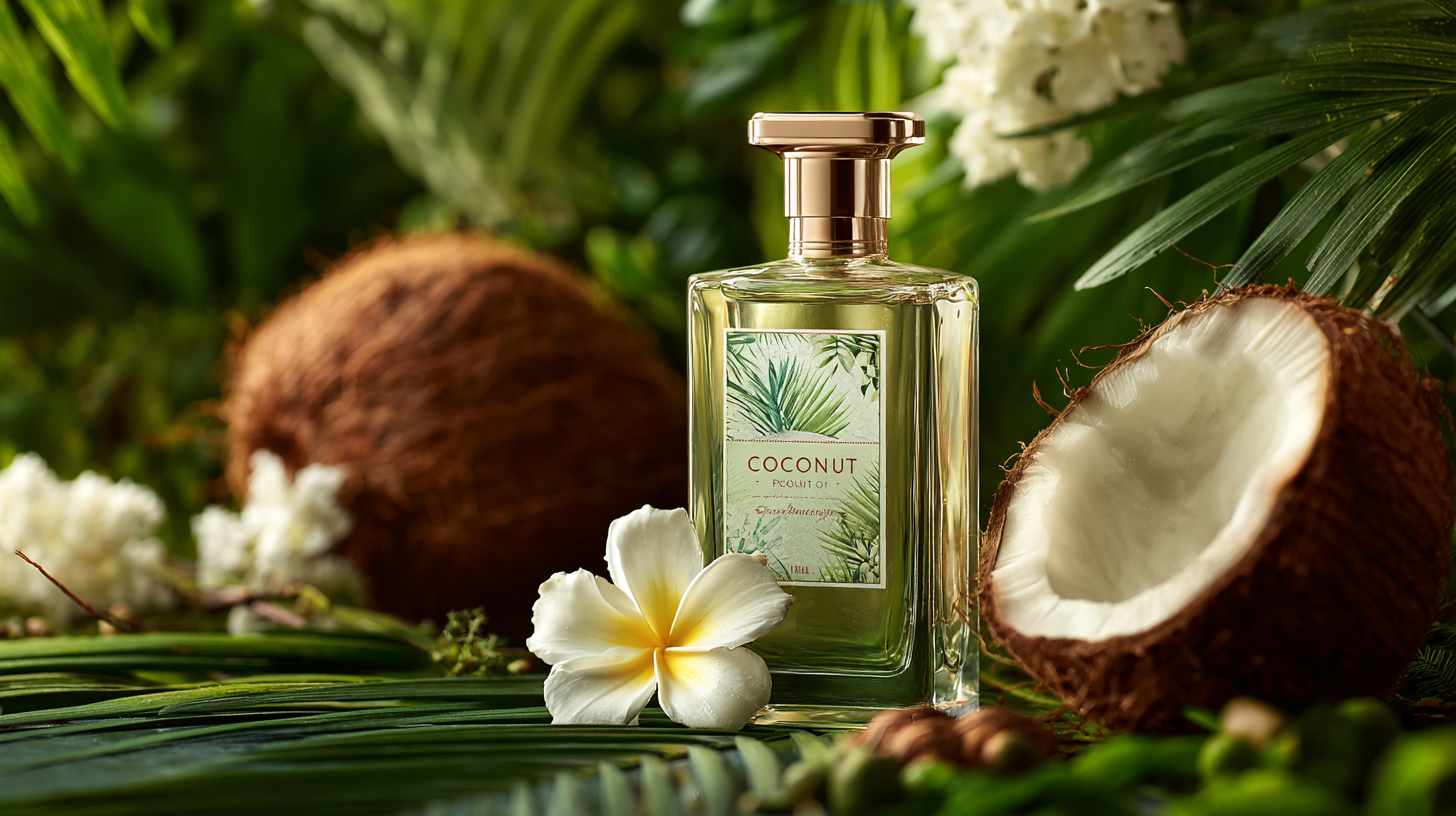
Global Market Trends for Best Coconut Perfume in 2025 Insights and Case Studies
As the global fragrance market continues to expand, coconut perfume is emerging as a key trend, particularly in the formulation of natural and tropical scents. According to a recent report by Grand View Research, the global perfume market is expected to reach USD 64.6 billion by 2025, with a significant rise in demand for coconut-based fragrances driven by consumer preferences for exotic and tropical aromas. Additionally, the growing inclination towards skincare and wellness products infused with natural ingredients further enhances the appeal of coconut perfume. With China being recognized as a leading manufacturer of high-quality fragrance products, insights and case studies from this region reveal innovative approaches to coconut scent formulations that resonate with both local and international markets. Understanding these global market trends is essential for brands seeking to capitalize on the rising popularity of coconut perfume and to meet evolving consumer expectations in this dynamic industry.

Understanding the Rise of Coconut Perfume in Global Markets
The rise of coconut perfume in global markets can be attributed to the growing demand for
natural and organic products, as consumers increasingly prioritize health and sustainability in their purchasing
decisions. The coconut oil market alone has reached a staggering valuation of approximately
US$ 6,049.4 million, reflecting the broader trend
toward incorporating beneficial, organic ingredients into personal care products. This demand is being driven not only by
coconut oil's antioxidant properties but also by a cultural shift towards embracing natural fragrances that
evoke feelings of relaxation and well-being.
Africa is playing a significant role in this trend, with its fragrance market projected to reach
$8.62 billion by 2024. The convergence of rich cultural
heritage and increasing global demand for unique scent profiles allows for innovative blends that feature
coconut notes prominently. As manufacturers across the globe leverage this momentum, the appeal of coconut
perfumes—highlighting their versatility and connection to organic origins—continues to expand. As the
industry evolves, staying attuned to these market dynamics will be essential for businesses looking to
capitalize on the lucrative opportunities that lie in the fragrant world of coconut-based products.
Key Trends Influencing Coconut Perfume Demand by 2025
The demand for coconut perfume is poised for significant growth by 2025, driven by several key trends that resonate with contemporary consumer preferences. One prominent factor is the increasing awareness of natural and sustainable products. As consumers become more environmentally conscious, there is a noticeable shift towards fragrances that incorporate natural ingredients, including coconut. This inclination not only meets the desire for eco-friendly options but also aligns with the clean beauty movement, which emphasizes transparency in sourcing.
Additionally, the rise of wellness and self-care routines is elevating the status of fragrance in personal care. Coconut, known for its calming properties and tropical essence, is becoming a popular choice for those seeking to enhance their sensory experiences. The incorporation of coconut notes in perfumes is also appealing to consumers looking for an escape from everyday stressors, further driving its demand. With these emerging trends, brands are increasingly focusing on innovative formulations that combine traditional scents with modern aesthetics, ensuring that coconut perfume remains a coveted choice in the global market.
Global Market Trends for Best Coconut Perfume in 2025 Insights and Case Studies
| Region | Market Size (Million USD) | Growth Rate (%) | Key Trends | Consumer Preferences |
|---|---|---|---|---|
| North America | 150 | 6.5 | Natural ingredients, eco-friendly packaging | Sustainability, premium quality |
| Europe | 120 | 5.8 | Rise in vegan products, artisanal brands | Unique fragrances, ethical sourcing |
| Asia-Pacific | 200 | 9.0 | Rapid growth of online retail, influence of social media | Youthful trends, celebrity endorsements |
| Latin America | 80 | 7.2 | Increasing interest in tropical fragrances | Affordable luxury, local ingredients |
| Middle East & Africa | 60 | 4.5 | Growing demand for exotic perfumes | Luxury segment, regional scents |
Case Studies: Successful Coconut Perfume Brands and Their Strategies
The coconut perfume market is poised for substantial growth by 2025, with an expected CAGR of 6.2% as per recent industry reports. Among the successful brands, Coconut Bliss and Island Essence have skillfully leveraged consumer preferences towards natural ingredients and sustainability. Coconut Bliss, for instance, has increased its market share by emphasizing organic sourcing and eco-friendly packaging. Their use of biodegradable materials has not only resonated with environmentally-conscious consumers but also set a benchmark in the industry.

Similarly, Island Essence has differentiated itself through innovative marketing strategies, including targeted social media campaigns that highlight the lifestyle benefits of their products. Their consistent engagement with influencers has led to a 45% rise in brand awareness over the last year. In an era where consumers are increasingly seeking authenticity, brands that combine quality with transparency are gaining a competitive edge. With coconut perfumes enjoying a resurgence in popularity, the strategies employed by these brands underline the importance of adapting to market trends while remaining committed to sustainability and consumer engagement.
Consumer Preferences Shaping the Future of Coconut Fragrance
In 2025, the landscape of coconut fragrance will be significantly shaped by evolving consumer preferences that prioritize sustainability and personal expression. As consumers increasingly seek authentic and eco-friendly products, the demand for coconut perfumes infused with organic ingredients will rise. The growing popularity of coconut oil due to its natural and antioxidant properties is indicative of a broader shift in consumer behavior, favoring products that align with their values regarding sustainability.
Moreover, the trend towards a diverse scent wardrobe reflects consumers' desire for personalization in their fragrance choices. Modern fragrance enthusiasts are looking for scents that resonate with their moods and occasions, leading to a burgeoning interest in unique coconut-based perfumes. As brands adapt to these preferences, we can anticipate innovative formulations and sustainable packaging solutions that not only enhance the customer experience but also contribute positively to the environment, ensuring that coconut fragrances remain alluring and relevant in a competitive market.

Sustainability in Coconut Perfume Production: Challenges and Solutions
The coconut perfume industry is experiencing a significant transformation as sustainability becomes a primary concern for consumers and manufacturers alike. With an increasing awareness of environmental issues, brands are challenged to adopt eco-friendly practices throughout the production process. This includes sourcing coconuts from plantations that employ responsible farming techniques, ensuring that local ecosystems are not adversely affected. The reliance on synthetic ingredients is also being reevaluated, as consumers show a preference for natural and ethically sourced components that minimize the carbon footprint.
Moreover, the challenge of sustainability extends beyond sourcing. Production processes must also be optimized to reduce waste and energy consumption. Innovative techniques such as cold extraction of coconut essence not only preserve the oil's fragrance profile but also require less energy compared to traditional methods. Case studies from leading fragrance houses illustrate how embracing sustainable practices can lead to a reduction in overall costs and improved brand loyalty, as consumers are more inclined to support companies that align with their values. The 2025 market trends will undoubtedly reflect these shifts as coconut perfumes evolve into more sustainable offerings.
